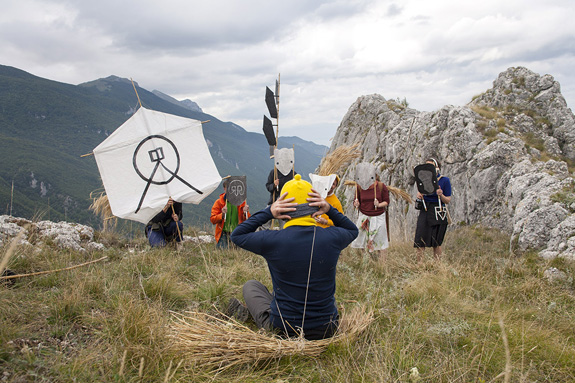
A consortium of twelve farmers in the Abruzzo region of italy have come together in 2014 to form Consortium Instabilis with the specific aim of growing, preserving and sharing rare and ancient seeds of cereals originally grown in different areas of Europe.
Throughout most of agricultural history the idea that seeds and other propagation material are part of the 'common heritage' of humankind has guided farming and breeding practices. To this day many farmers are still operating within an ethos of "We do not own the earth or seeds, it is a common good that we just manage at the moment."
Consortium Instabile align under a common agreement to collectively define terms of engagement with the land and the biological material upon it and the rights and obligations of its caretakers and users. The terms of this engagement align with the idea of 'commons', in that this is not 'property', but a material held in common to be used and shared freely.
The name Consortium Instabile draws from the language developed by the International Treaty on Plant Genetic Resorces for Food and Agriculture (TRIPs) to describe 'certified' seeds. It aligns itself with the objectives of the International Treaty on Plant Genetic Resources for Food and Agriculture which are to conserve and sustain use of plant genetic resources for food and agriculture and the fair and equitable sharing of benefits arising out of their use, in harmony with the Convention on Biological Diversity, for sustainable agriculture and food security.
C.I. asserts that a dynamic ecology is in a constant state of flux and evolution whereby plant material will articulate this as being:
- unstable
- undescribable
- heterogeneous
The international framework on plant genetic resources states that a plant variety must be:
- stable
- describable
- homogeneous


